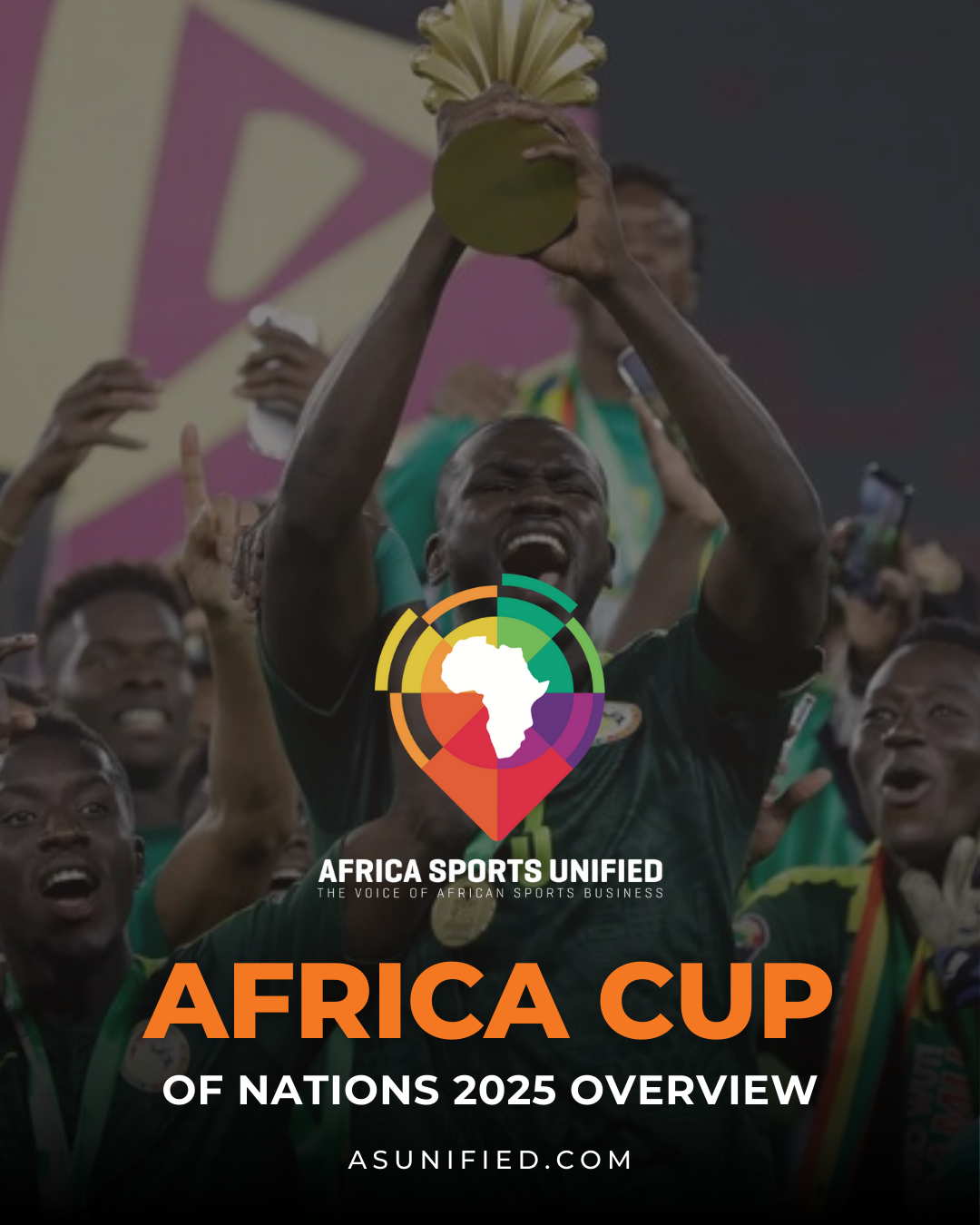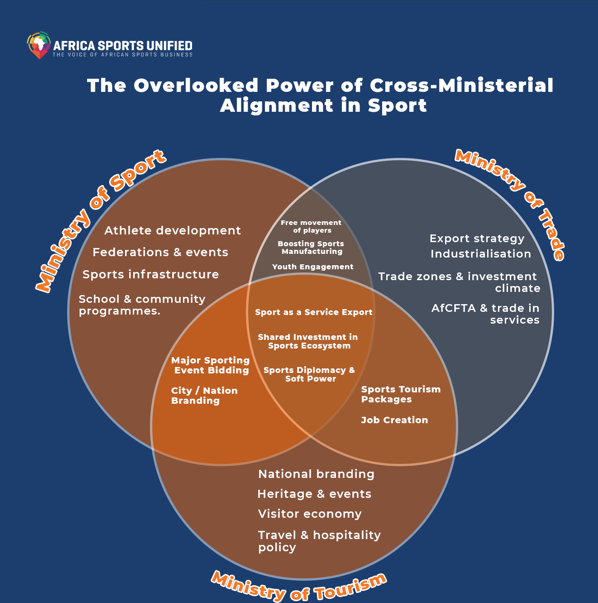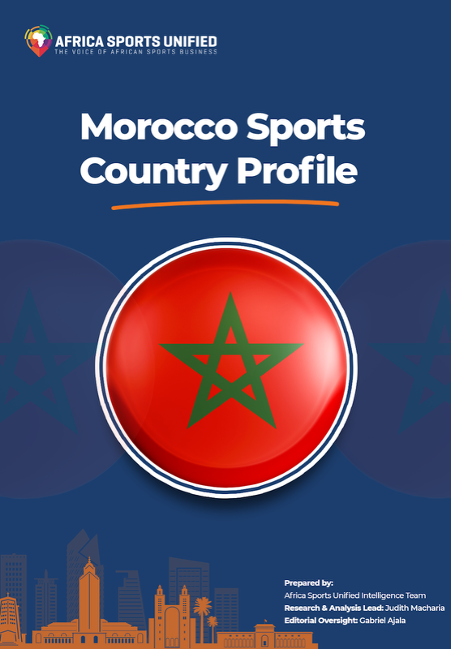Disconnected Ministries, Disconnected Outcomes: Why Government Silos Are Killing Africa’s Sports Economy
Gabriel Ajala
June 20, 2025
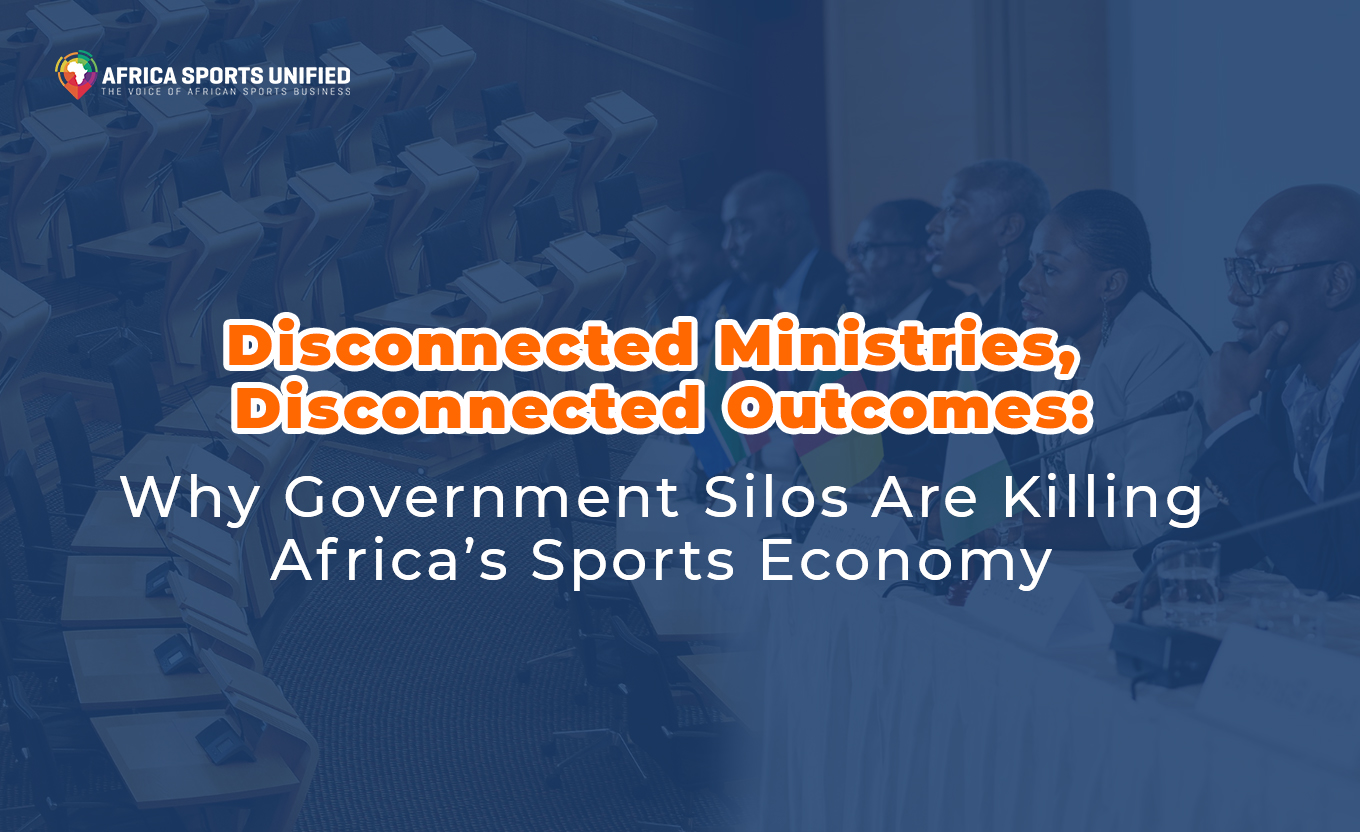
Disconnected Ministries, Disconnected Outcomes: Why Government Silos Are Killing Africa's Sports Economy
A portion of my time is often spent having meetings with different ministries within the same government e.g. a Ministry of Sports and the Ministry of Tourism. Different rooms. Different teams. Same country. Yet, a common theme often occurs ... they have rarely spoken to one another about sport.
This isn't unique to any country in particular; it's a common issue across the continent, which was evident during our work with The United Nations Economic Commission for Africa. Ministries operate in silos, and as a result, sport is consistently underleveraged as a driver of economic growth, trade, and national development.
Governments talk about the power of sport. But their structures kill that power before it ever gets a chance to move.
Silos Aren't Just Inefficient - They're Expensive
Let's start by calling out a mindset problem. Though this is changing across Africa, sport is still seen primarily through a social or recreational lens, rather than as a strategic economic sector. This is outdated thinking and there are a few countries paving the way in this, and the fruits of which are evident, such as Rwanda, Morocco, and South Africa. (You can read more about this in our Africa Sports Trend Report 2025)
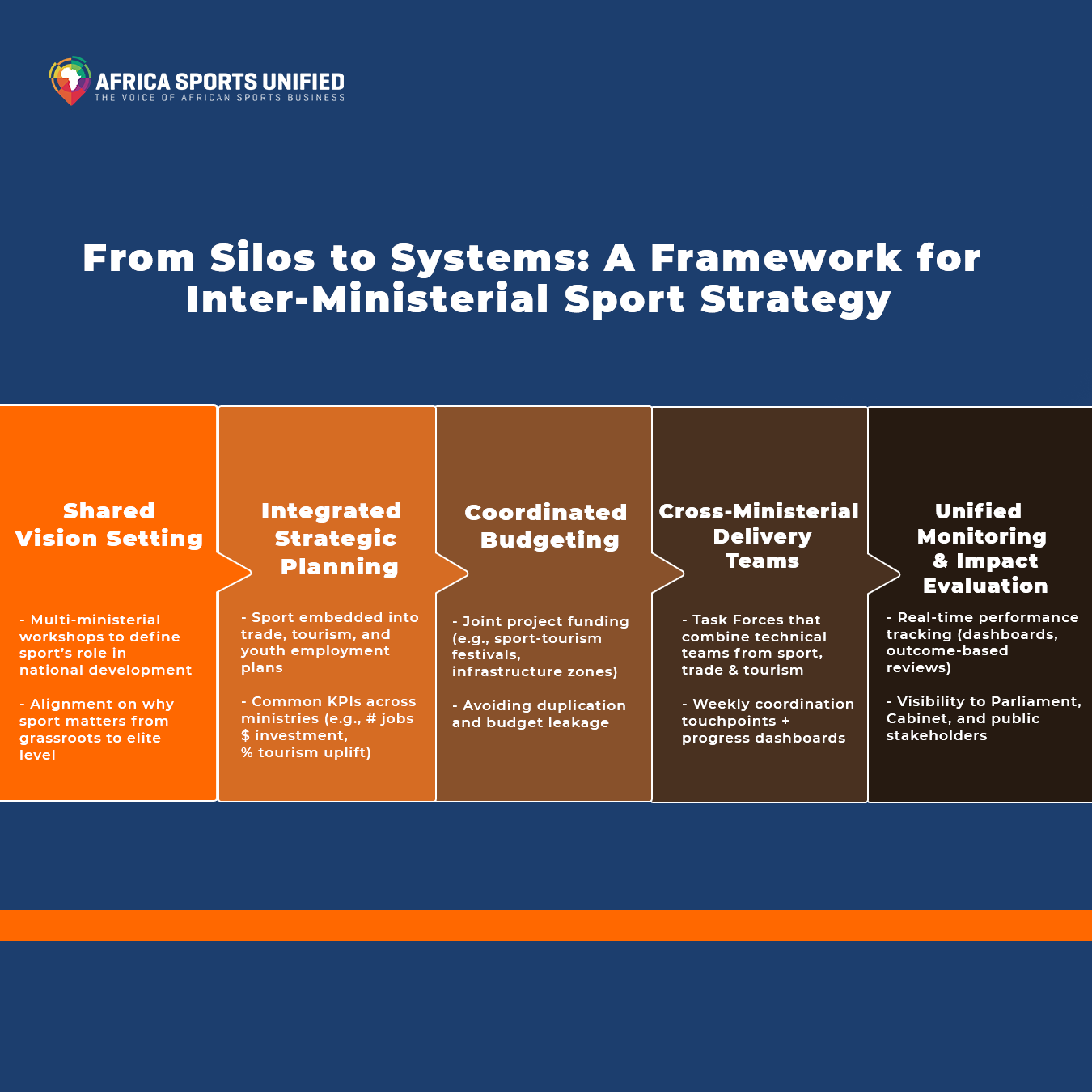 Sport is a multi-sector economic engine. It intersects with:
Sport is a multi-sector economic engine. It intersects with:
Trade & investment (AfCFTA, regional integration)
Tourism (event hosting, sports destinations)
Manufacturing (apparel, equipment)
Education (talent development, scholarships)
Broadcasting & Media (rights, content creation)
Urban planning & infrastructure (stadiums, transport)
Health (active population, mental wellness)
And much more...
According to PwC, a report on the sports sector in Africa was estimated to be worth $7 Billion in 2018 and projected to reach $12 Million in 2027. More recently, a report from Olivery Wyman, valued the market at $12 Billion in 2024 and projected it to reach over $20 Billion by 2035.
But that won't happen if Sport Ministries keep writing strategies in isolation. Every time Ministries of Sport, Trade, Tourism, or Youth operate independently, governments lose:
Policy alignment: National development plans exclude the cross-sector value of sport.
Investment: Investors can't see a coherent vision and shy away from fragmented initiatives.
Trade opportunities: Under AfCFTA, trade in services is a game-changer. But sport isn't even on the radar for most trade departments.
Talent pathways: Without coordination between sport and education ministries, pipelines remain broken.
Tourism revenue: Countries that host events without tourism agencies in the loop fail to monetise travel, hospitality, and legacy benefits.
This isn't a theory. Its reality is visible in missed opportunities, poor policy uptake, and stunted local ecosystems across the continent.
The AfCFTA Opportunity: Sport as a Trade in Services Engine
The African Continental Free Trade Area (AfCFTA) is the most ambitious economic integration project in the world, connecting 1.4 billion people across 55 countries into a single market worth over $3.4 trillion.
It's designed to boost intra-African trade by reducing barriers and promoting the free movement of goods, services, and people.
Here's the part most ministries are ignoring:
"Trade in services" is a key pillar of AfCFTA, and sport fits perfectly within it.
Sport-related services include:
Sports tourism (events, training camps, tournaments)
Talent mobility (coaches, physiotherapists, consultants)
Broadcasting and digital rights
Professional services (law, finance, management)
Sportswear and gear manufacturing
But if Trade Ministries aren't talking to Sport Ministries (and vice versa) these opportunities stay on paper.ÃÂÃÂÃ
In our work with The United Nations Economic Commission for Africa (UNECA) we highlighted various ways in which sports could be used as a tool for economic growth and intra-Africa trade, highlighting the importance of regional cooperation and engagement. (link to podcasts etc).
The Core Problem: No Inter-Ministerial Ownership
Right now, many African countries have national sports policies. Some even have trade and tourism blueprints.
But they don't talk to each other, let alone reinforce one another. And without inter-ministerial taskforces, shared KPIs, and unified delivery structures, the vision falls apart in execution. The harsh reality of this is clear ...
If your Ministry of Sport doesn't know the investment targets of your Ministry of Trade, your policy is incomplete.
If your Ministry of Tourism isn't integrated into your sports event planning, you're leaving millions on the table.
This isn't about blame, it's about design. Most governments were not structured to think of sport as a cross-cutting economic sector. But now they must adapt, or be left behind.
What Needs to Change, Now
If governments want sport to deliver real economic results, not just social talking points, three shifts are non-negotiable:
1. Cross-Ministry Collaboration by Design
Create formal structures for inter-ministerial cooperation between Sport, Trade, Tourism, Education, Youth and any other relevant ministry.. Not just informal relationships, actual joint planning, joint KPIs, and shared budget ownership.
2. Sport as an AfCFTA Sector
Treat sport as a formal contributor to your trade in services agenda. Develop export strategies around sports services, rights, and tourism. Push for sport to be prioritised at the regional and continental level.
3. Strategic Ecosystem Roadmap
Develop roadmaps that align sport development with national investment priorities, tourism campaigns, and youth employment strategies. These must include implementation guides, not just policy intent.
Governments Can't Afford to Work in Silos Anymore
If you're in government and serious about using sport to drive trade, investment, and development, now is the time to act.
Sport is no longer a "nice to have." It's a strategic growth lever.
How Africa Sports Unified Helps Governments Bridge the Gap
At Africa Sports Unified, we work with forward-looking governments to break down silos and build integrated, future-ready sports ecosystems.
Our services include:
Policy & Strategy Roadmapping: Aligning sport strategies with national goals.
AfCFTA-Aligned Trade Advisory: Positioning sport as a viable export and service sector.
Tourism & Ecosystem Playbooks: Linking sport with tourism, job creation, and infrastructure.
Stakeholder & Partnership Mapping: Identifying who matters and how to activate them.
Implementation Support: Helping governments turn plans into executed outcomes.
Related Posts

